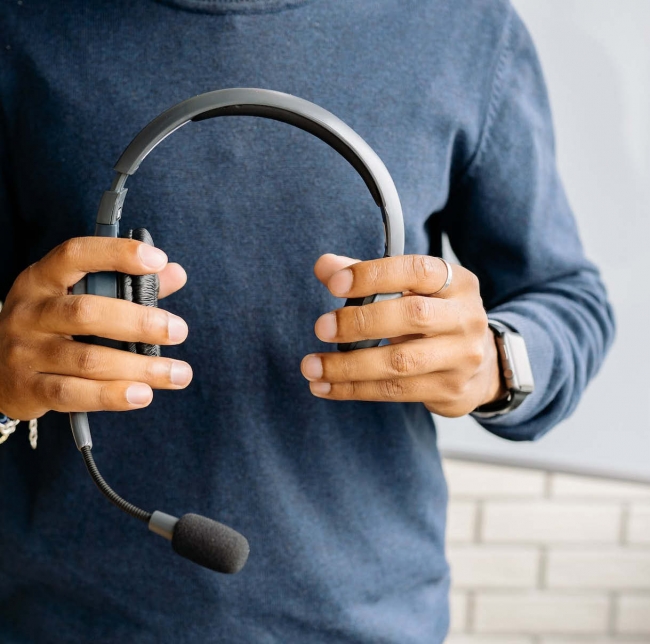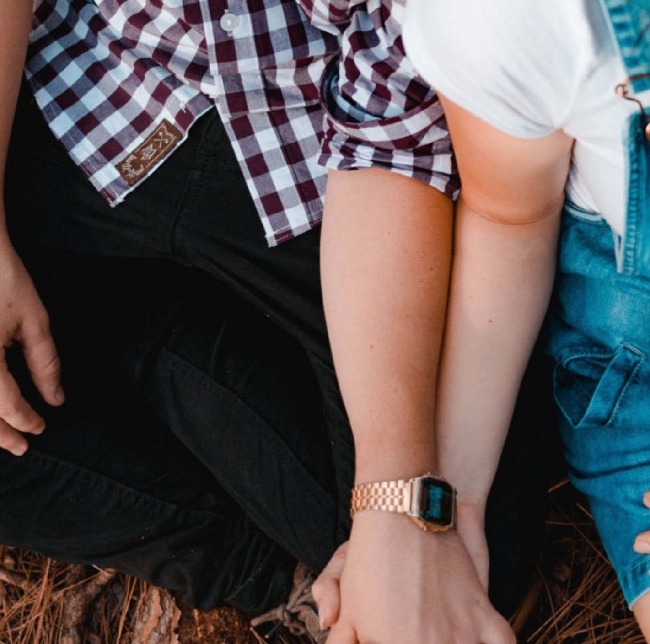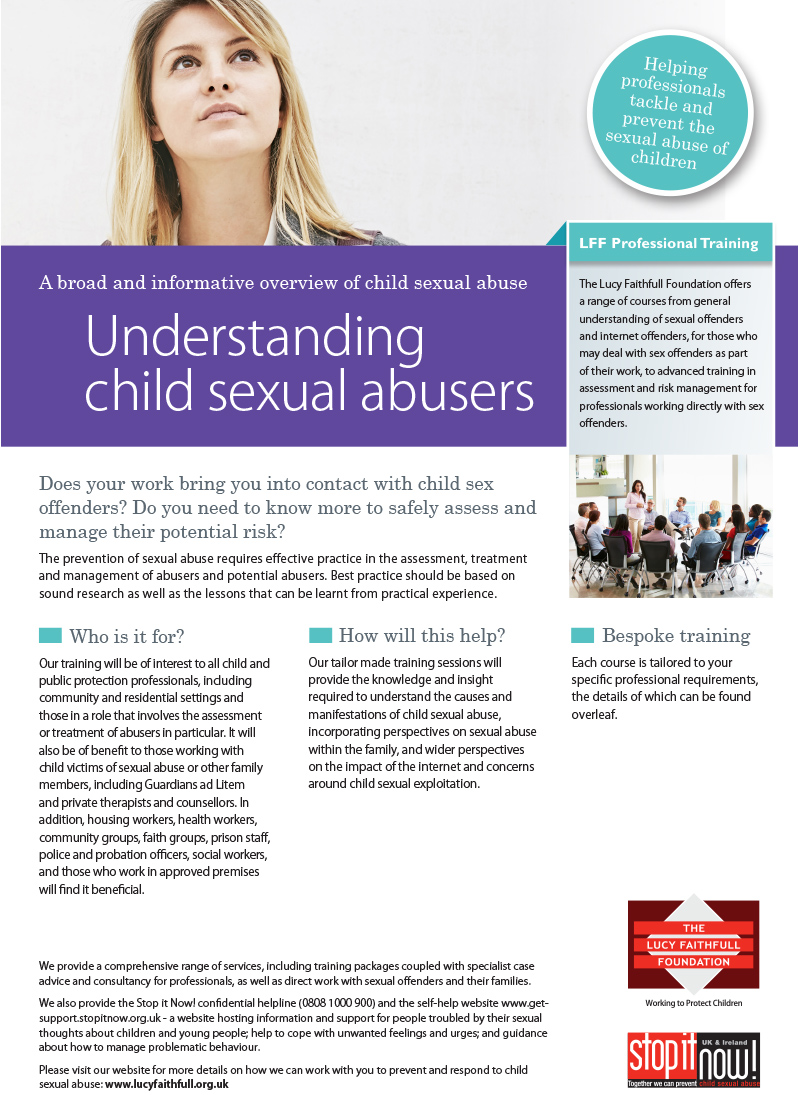Understanding Men who Sexually Abuse children Training
A broad and informative overview of child sexual abuse
Who is it for?
Our training will be of interest to all child and public protection professionals, including community and residential settings and those in a role that involves the assessment or treatment of adults who sexually abuse children in particular. It will also be of benefit to those working with child survivors of sexual abuse or other family members, including Guardians ad Litem and private therapists and counsellors. In addition, housing workers, health workers, community groups, faith groups, prison staff, police and probation officers, social workers, and those who work in approved premises will find it beneficial.
How will this help?
Our training sessions will provide the knowledge and insight required to understand the causes and manifestations of child sexual abuse, incorporating perspectives on sexual abuse within the family, and wider perspectives on the impact of the internet and concerns around child sexual exploitation.
- The models used to understand the origins and expression of sexually abusive behaviour
- The process of sexually abusive behaviour in a variety of contexts
- The impact of child sexual abuse
- What we mean by 'risk' and 'risk management'
- Defensible decision-making.
- The scale of the problem, including incidence and prevalence. Who are the people who sexually abuse children? What are we doing about it?
- Models for understanding and assessing this behaviour
- How to use 'knowledge' from people who sexually abuse children in direct work with people who sexually abuse children and their families, including the non-offending partner
- Internet offending and people who commit child sexual abuse
- How child sexual abuse affects the individual victim, and the wider family, including siblings
- Applying situational crime prevention to child sexual abuse
Throughout, you will be given the opportunity to explore and discuss the issues related to your work situation using your own case examples and practice.
Past attendees told us:
Contact us
For more information and to discuss your training requirements, contact the Training Coordinator:
Sign up for news & updates
Fill in our newsletter form hereTo support our work to protect children, donate today.
Donate today






